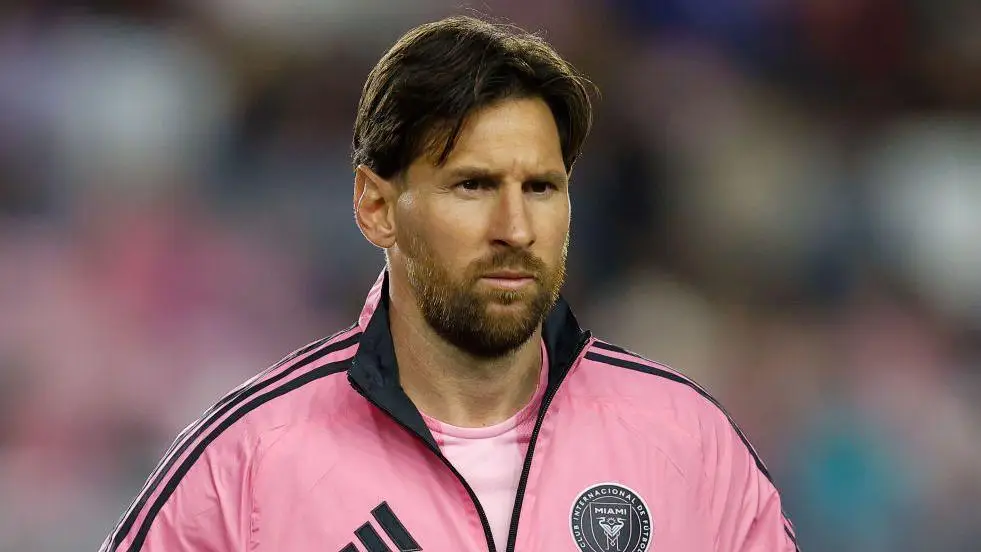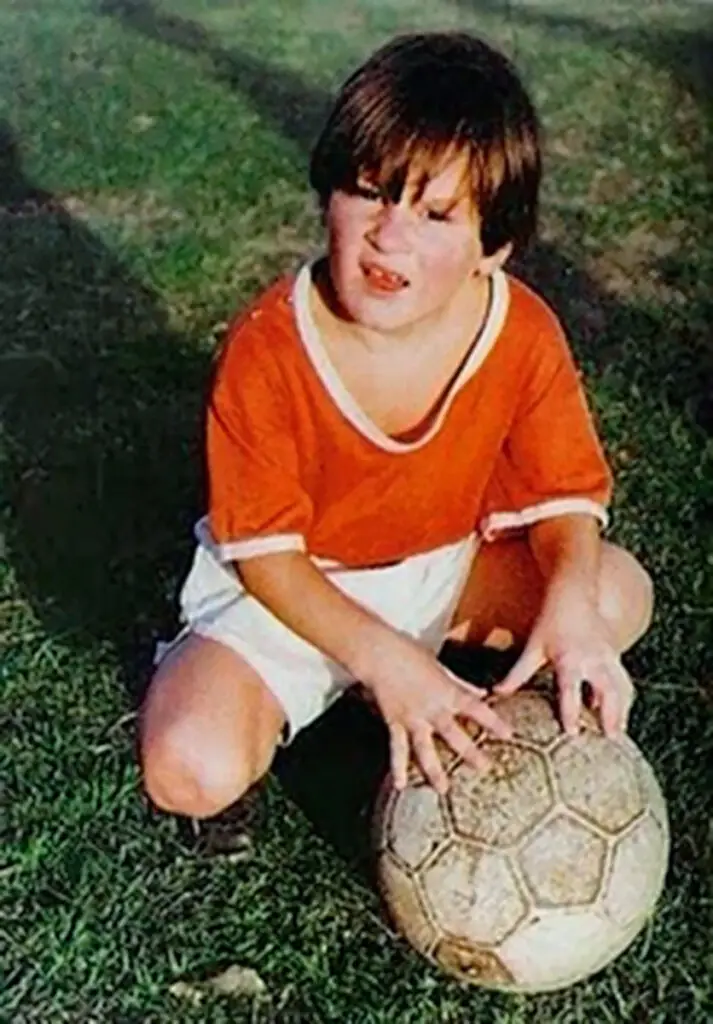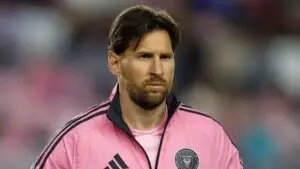1.Introduction:
In addition to being a talented football player, many people consider Lionel Messi to be a football god. The story presents Messi’s importance and alludes to his near-divine status among supporters.

2. Chlidhood and Early Life:
Messi, the third son of Jorge and Celia, was born in Rosario, Argentina, on June 24, 1987. Messi had a keen interest in football from a young age and began playing as soon as he was able to walk. He participated in their unofficial games with his two older brothers, displaying early promise despite his youth. With the help of his father, Messi was able to join a nearby football team and soon showed his talent

3. Health Issues in Childhood:
Messi was diagnosed with a growth hormone deficiency at the age of ten, which could have severely hampered his ability to play professional football by limiting his height to just 4 feet 8 inches. Due to the high cost of the treatment—roughly $1,000 per month—his steelworker father’s income was severely impacted. Messi’s family came together to pay for the treatment in spite of financial difficulties.
4. Early Football Career and Club Trials:
Argentine clubs like River Plate were interested in Messi because of his remarkable early performance, but they withdrew their interest because of the high cost of his medical care. Using family connections in Catalonia, an advisor recommended contacting a European club for assistance. In 2000, this resulted in a trial at FC Barcelona. Messi made an impression right away, leading to an unofficial contract that is now famously known as the “Napkin Contract” and was signed on a piece of tissue paper. This contract marks the start of Messi’s remarkable international career.
5. Adaption and Difficulties in Spain:
Messi had serious registration issues when he first arrived in Spain, which caused him to postpone official enrolment in the Spanish Football Federation. Despite playing informally, he was greatly impacted by homesickness and language barriers. Messi’s early adjustment issues were exacerbated by the fact that he lived apart from his mother, whom he missed terribly. But by 2002, when he was 15, he had formally entered Barcelona’s youth system. He blended in with his teammates and was given the moniker “Baby Dream Team” as the team won the youth league.
6. Emerging Talent and Initial Achivement:
Messi scored 36 goals in 30 games for the youth team, quickly becoming a key player with impressive goal-scoring records. Because of his influence, he was quickly promoted to more competitive levels and compared to legends. In addition, Messi received offers from teams like Arsenal, but he decided to stick with Barcelona and his pals.
7. Becoming a Professional Footbal Player:
Messi impressed coaches with his technical skills when he made his professional debut for Barcelona’s first team in 2003 at the age of 16. He started working out with more seasoned players like Ronaldinho, who saw Messi’s potential and took him under his wing.
8. Innovations and Prompt Identification:
After his first official goal in 2005, Messi steadily improved and made significant contributions during the 2006 season at the age of 18. Despite missing three months due to injury setbacks, he continued to play well, securing his reputation with a noteworthy hat-trick in El Clásico.
9. Increasing Market Value and Difficulties:
European powerhouses like Inter Milan expressed interest in 2005–2006, offering transfer fees of up to €150 million, which is an incredible amount for a teenager. Barcelona resisted because they saw Messi as a key player for the future. At the same time, Messi’s training, diet, and fitness routine became more structured and involved specialised support personnel.
10. Tactical Development and Team Dynamics:
Messi became a more important offensive threat as Ronaldinho’s play deteriorated and Barcelona’s management changed. With Messi receiving the recognisable number 10 jersey and being developed as the team’s star player, Pep Guardiola’s arrival signalled a sea change.
11. Notable Accomplishments and Honours:
Messi had made a name for himself around the world by his early 20s, winning numerous championships, including the Champions League and Spanish league titles, and successfully spearheading Barcelona’s attack. With an unprecedented voting margin, Messi won his first FIFA Ballon d’Or and Player of the Year awards in 2009 (when he was around 22 years old), solidifying his place as the greatest player in the world.
12. Legacy and Influence:
By contrasting Messi with Maradona and emphasising his iconic goals, impossible moves, and widespread fan admiration, the story discusses Messi’s steady ascent and how his career is entwined with football history. It shows Messi’s enduring influence by hinting at ongoing stories and developments that need more investigation.
Note of Summary:
Messi’s journey from a small town in Argentina to Barcelona, where he overcame health issues to become a global football icon, is encapsulated in this overview. The narrative highlights Messi’s early years and career rise as a story of talent, perseverance, family support, and dedication.



Siuuuuu
siuuu